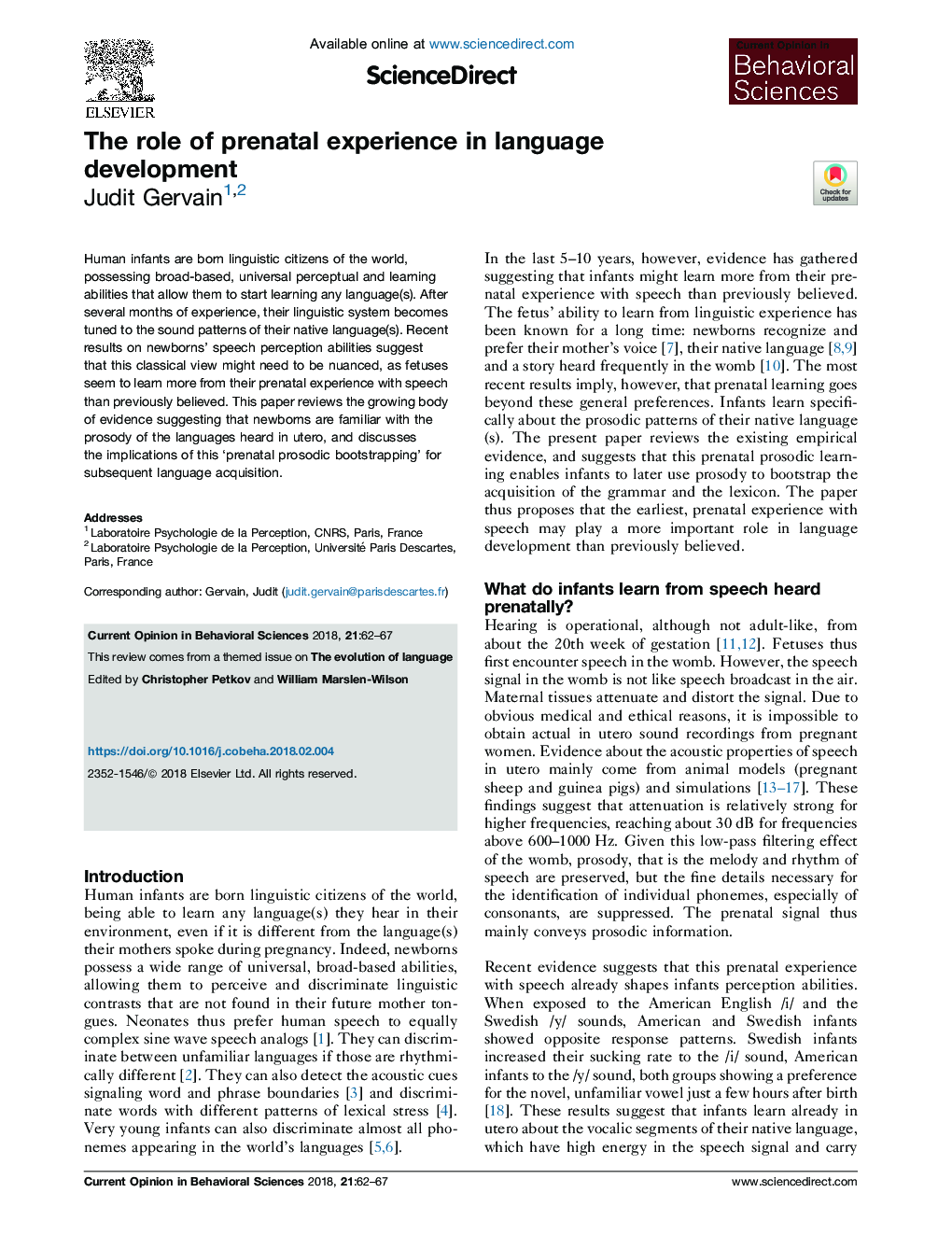| Article ID | Journal | Published Year | Pages | File Type |
|---|---|---|---|---|
| 8838125 | Current Opinion in Behavioral Sciences | 2018 | 6 Pages |
Abstract
Human infants are born linguistic citizens of the world, possessing broad-based, universal perceptual and learning abilities that allow them to start learning any language(s). After several months of experience, their linguistic system becomes tuned to the sound patterns of their native language(s). Recent results on newborns' speech perception abilities suggest that this classical view might need to be nuanced, as fetuses seem to learn more from their prenatal experience with speech than previously believed. This paper reviews the growing body of evidence suggesting that newborns are familiar with the prosody of the languages heard in utero, and discusses the implications of this 'prenatal prosodic bootstrapping' for subsequent language acquisition.
Related Topics
Life Sciences
Neuroscience
Behavioral Neuroscience
Authors
Judit Gervain,
